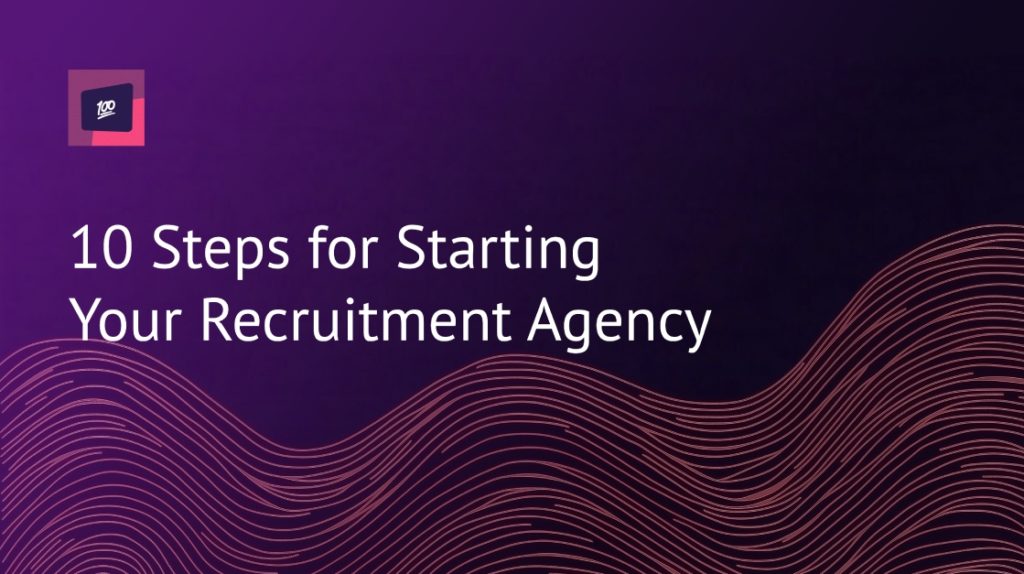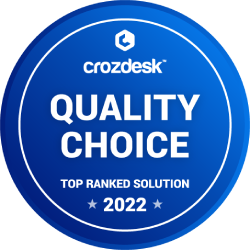10 Steps for Starting Your Recruitment Agency

The recruitment agency does a lot more than identifying the right candidates for the job in question. An experienced and professional recruiter is supposed to go over hundreds of professional resumes and select the most deserving applicant for the role. Not only do they help companies fill in the vacancies with the best people, but a recruitment agency assists candidates in finding better career opportunities.
The demand for recruiters has skyrocketed lately, especially after the COVID pandemic. More and more clients are looking for recruitment agencies to hire qualified, skilled, and talented employees. If you think you have what it takes to be a great recruiter, you should consider giving this business a shot. These 10 steps will give you a good start for setting up your recruitment agency.
the best candidates faster



1. Select a Niche
You can have a traditional recruitment agency that only scouts for applicants when there’s a specific vacancy in a company. These agencies charge a fixed fee for finding a candidate for the role or a certain percentage of the employee’s salary.
A head-hunting agency, on the other hand, is responsible for finding qualified executives for high-paying jobs. Whichever niche you choose, your job is to match candidates’ profiles with the job specifications and help fill vacancies faster. However, it is better to select and stick to one niche only.
Once you've determined your niche, brainstorming creative business name ideas that reflect your agency's specialization can be an exciting next step. A catchy and memorable name can leave a lasting impression on potential clients and candidates, setting the stage for your recruitment agency's success.
2. Set Your Goals
Once you have picked a niche, the next step is to set realistic and achievable goals. Like any other business, you need to decide on a long-term goal.
You need to set targets that you’d like to achieve over a specific duration. Decide which industries you will be serving and how many vacancies you can fill in a month. You can break down your long-term objectives into small achievable goals.
3. Identify Your Competitors
What is your USP? It is the first thing any company will consider before hiring your recruitment services. What qualities set your business apart from other recruiters? Most importantly, what strategies do you use to find the best candidates?
A SWOT (strengths, weaknesses, opportunities, and threats) is a commonly used method for identifying your competitors. It gives you a better idea of the strategies your competitors are using and where they are lacking. Based on this, you can come up with a plan to make your services better and more efficient than your rivals.
4. Develop a Financial Plan
Unlike other startups, a recruitment business does not cost you a fortune. You only have to fund the office equipment, staff, insurance, and other working capital requirements. If you are having a hard time funding your startup, consider seeking financial advice.
You can start your business in partnership to get financial support. Besides, having a partner is a great way to grow your business and make it more efficient and productive. Getting a loan for your startup is an ideal way to start a recruitment business, but your savings are mostly adequate to get your business up and running. Most entrepreneur success stories begin with the proper funding and a solid financial plan.
5. Check Your State’s Recruitment and Corporate Laws
Ideally, you should leave the legal work to an attorney. They have the skills and experience in handling all the legal work effectively. However, it is equally important that you understand the basic corporate laws before getting started with your business idea.
Having a sound understanding of the recruitment and business laws of your state will prevent legal problems in the future. For recruitment agencies, GDPR compliance is mandatory. So, go through these regulations to learn more about data protection and other recruitment laws.
6. Develop a Marketing Plan
Start off with an employment agency or HR logo, business card, and other marketing tools that leave the first impression on your target audience. Make a digital business card to complement these traditional materials. Once you are done with the graphic designing part, move on to the next step that involves building a network. A recruitment agency has to have a vast network of employees looking for a suitable job as well as fresh talents. LinkedIn, UpWork, Freelancer, Fiverr, and other job portals are great places to find people. Here are the six main things you need to consider for a solid marketing plan:
- Advertisements
- Public relations
- Digital marketing
- Sales promotion
- Email campaigns
- Direct marketing
A well-designed and professional-looking website is a must for any recruitment agency. You have to bring the potential candidates to your website, where they should find information about your services, experience, satisfied clients, and companies you are working with.
7. Set up Your Office
Nowadays, most recruitment agencies are operating virtually, and global HR tools are enabling them to hire remotely from any location. However, having a physical setup for your business is highly recommended, as it gives the candidates and your clients reassurance that you are a legit company. Besides, work-from-home is not the perfect environment for all recruiters. It is better to have an office to ensure maximum productivity, greater efficiency, and the best quality.
8. Use the Right Technology
The success of the recruitment agency depends on the technology you implement. We have already mentioned the importance of a website for a successful recruitment business. In addition to that, you should consider the following technology for your startup:
- A dedicated recruiting CRM software
- Effective payroll and accounting system
- Cybersecurity solutions
- Social media accounts
Many software providers offer software apps designed for recruitment agencies. Check out the best tools and implement them on your premises for the best results.
9. Build Your Team
Start hiring people for finances & accounting, customer support department, management team, and qualified HR professionals. It is teamwork that helps take your business to new heights. So, invest in qualified and skilled people and add the best candidates to your team by going through professional resumes.
10. Get Started with Your First Project
Once you are done with the office setup and team building, look for your first project. It might be a little challenging to find your first project as a recruiter (especially if you have no experience and previously accomplished projects to showcase). However, with a dedicated team, it’s not that hard to land your first client.
Conclusion
With the best employees on board, you will be surprised to see how easily you can bring your recruitment agency idea into reality. Follow the above steps to build your recruitment agency in no time.
the best candidates faster




